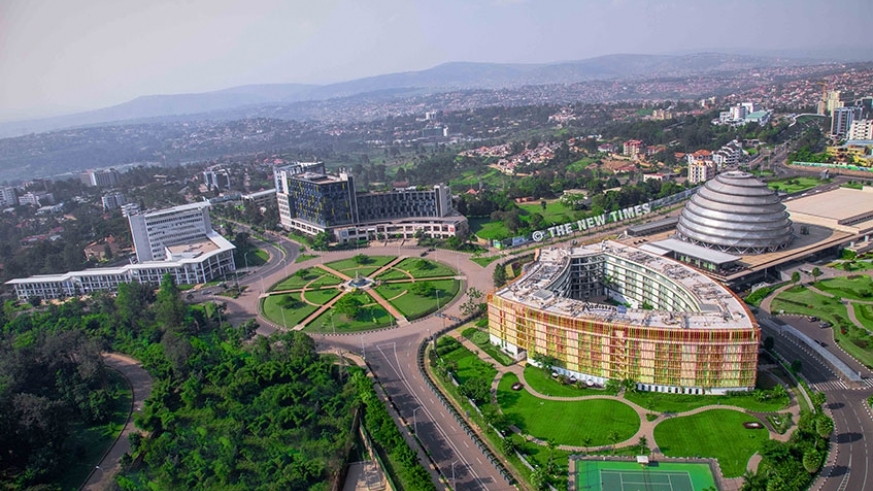One of the most debated questions in the world of entrepreneurship is if entrepreneurs are born or made.
Farai Munjoma, Founder and CEO of Shasha Network, a digital learning company providing young people access to academic and career education, believes that entrepreneurs are made.
At the age of 12 years old, Farai’s mother gave him the vexatious task of selling chickens at the local market. His father had lost his job in the wake of Zimbabwe’s economic collapse and his mother had become the sole breadwinner for the extended family. Having told Farai that her civil servant salary wasn’t enough to cover his school fees, she sent him on a mission to make up the shortfall. Zimbabwe was at the peak of hyperinflation and the economy was in turmoil, which resulted in the loss of livelihoods for many families. Although consumed with feelings of embarrassment, Farai’s youthful charm saw him become a hit, with his chickens soon selling out before he could even reach the market on his bicycle.
Through this experience, the seeds of entrepreneurship were planted. They were not to bloom, however, until Farai was confronted with stark inequalities in the educational landscape. “Many children dropped out of school at the time and we lost our best teachers to neighbouring countries such as South Africa and Botswana” Farai recalls. Recognising that many of his peers lacked access to a good education, while he was afforded the opportunity to attend one of Zimbabwe’s top high schools, Farai aimed to level the playing field by launching an e-learning social enterprise, Shasha Network, at the age of 18. Whilst completing his A-levels, Farai worked on digitising curriculum notes and sample exam papers for students to access for free. He realised early on that education was the key to breaking the poverty cycle for young Zimbabweans.
Since launching in 2015, Shasha has reached thousands of students across the continent and has grown to become an award-winning online learning platform. Through Junior Achievement Africa’s entrepreneurship program for high school students, Shasha Network was able to access mentors and support. This was only the beginning of Shasha’s journey as Farai’s experience later on in his pursuit for tertiary education would inspire a new approach to Shasha Network’s work through their Bridge program.
Pursuing an education without enough funds
Having been selected to attend the African Leadership Academy’s (ALA) catalyst term in South Africa, Farai became determined to study a Business Management degree at African Leadership University’s (ALU) campus in Mauritius. He was inspired by the innovative thinking that characterises ALA and ALU’s disruptive educational model. The only snag was that he couldn’t afford the fees to attend the university of his dreams. Today, only 9% of youth in Africa are in tertiary institutions, and as the population increases, this will continue to put a strain on available institutions and lack of access to tertiary education will continue to plague the young people. Given this predicament, Farai courageously reached out to 50 people he had met throughout high school and his time at ALA, in the hope that someone would be able to provide financial support. After receiving dozens of rejections over the following months, he was about to give up when he saw an email in his inbox with the subject line, “Get Ready for College.” An American videographer who had visited his school in 2012, with whom Farai had formed a connection after the painful passing of his mother, convinced 15 of his friends to contribute towards Farai’s tuition. Farai credits the success of his enterprise with the life-changing connections he’s formed and the resources he’s mobilised through the African Leadership Group. Soon after completing his degree, he started working directly with Fred Swaniker at the AL Group, a role he took on upon graduating from ALU last year. It is an opportunity he doesn’t take lightly; he’s grateful to have worked for a visionary such as Fred, who has become his greatest mentor and role model.
What is Your Vision for Shasha Network?
To reach millions of high school students across the continent, breaking barriers through digital learning and providing access to our career development program, Shasha Bridge. Farai believes that what keeps many young people from accessing the right education opportunities is that they lack access to information and mentorship that can enable them to develop and aim for their highest career aspirations. This goes beyond academic coursework — it’s about exposing young people to crucial concepts such as mentorship, career research, personal branding, and self-leadership. These will prove effective as they venture out into the world in search of opportunities. Thanks to the learning experiences I was exposed to at ALU and the internships I was able to take part in, I’ve managed to raise funds from companies such as Facebook Africa and FedEx to support students.
What is the greatest lesson learned from the African Leadership Group?
Fred Swaniker is by far the hardest working person I know. I thought I knew what working hard looked like before becoming Deputy Chief of Staff. I’m a testimony to the power of what Fred is building. I’ve seen how the African Leadershipeadership Group opens doors and unlocks incredible opportunities for thousands of young people. It’s exciting to be part of setting up a foundation for millions to access this type of education. The institution’s ability to chase moonshot missions such as creating 3 million leaders has also inspired the Shasha Network to be bold in its pursuits.
What do you think it takes to be a successful entrepreneur?
Three things. Firstly, you need to find a problem that you’re passionate about and it has to resonate on a deep level. If you’re going to put in the long hours and put up with all the sacrifices you’ll have to make, you need to believe in what you’re doing. There’s no justification for embarking on an enterprise if you can’t envision yourself being committed to it for the next 5–10 years and beyond.
Secondly, you need to build relationships if you want to succeed. I would be nowhere without the relationships I’ve formed. They’ve linked me to a wealth of resources and opportunities. More entrepreneurs must get immersed into a vibrant ecosystem that connects them with a community of mission-driven people. Access to these types of relationships is more valuable than anything. Young people exchange and cross must pollinate ideas across borders, as some of our most pressing challenges will not be solved in isolation.
Thirdly, you need to have empathy for the people you’re impacting. Every user of your product or service, every employee, and every client has to be made happy by what you’re offering, so empathy is crucial. The challenge should be to put people at the centre of whatever work you do.
What’s next for the Future?
The future of Africa highly hinges on the ability of young people to be able to create value for their communities through innovative business solutions. Our continent is a rich ground for new entrepreneurial endeavours, the most resilient ventures in the coming years will be those which are well networked. Being part of a bigger ecosystem will guarantee continuous learning and resource exchange. My personal experience building Shasha Network and working with organisations such as the African Leadership Group is a testament to the possibilities that exist when you bring like-minded people together.
Farai is currently pursuing a Master’s in Entrepreneurship and Innovation at the University of Edinburgh Business School, whilst remaining as the CEO of Shasha Network. He is one of 21 scholars from Africa, selected by the Mastercard Foundation to study on scholarship at the university. At the Business School, he is an Africa Lead Curator for the Entrepreneurship Society, where he is responsible for designing and curating seminars aimed at creating awareness about the African entrepreneurial ecosystem. “I took up this role as a way to connect my western colleagues to local African entrepreneurs and demystify the misconceptions about doing business on the continent.” Farai is determined to foster partnerships and collaborations that will see the next generation of leaders working together to achieve shared prosperity. His journey has been pivotal in exposing him to entrepreneurship, not only through observing other entrepreneurs but through doing. This is what makes him confident that more entrepreneurs can be created to solve the world’s most pressing challenges, which is what his organisation Shasha Network is working towards.


